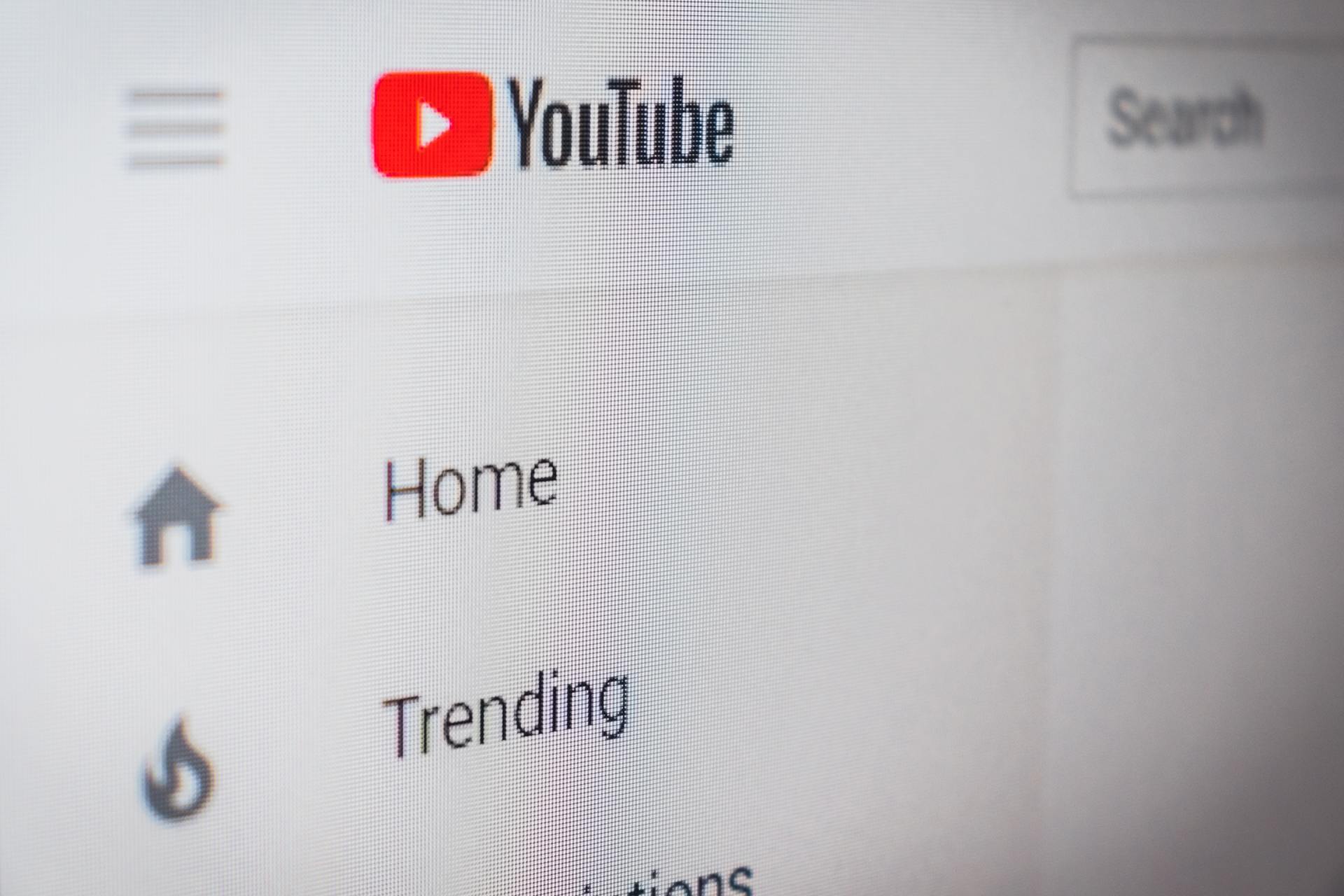BLOG
Blog

By Peter Cady
•
October 6, 2020
I wanted to give some praise to Duda for their great content management system. I recently set up a web site on Duda, and was amazed at how simple and efficient the process is. It literally took me only thirty minutes to set up my site, and I was given a tremendous plug and play template that fit my needs. I will admit that I am a little biased here because Duda had the template that fit the niche that I am in, but they have plenty of other templates available, including ones for personal trainers, plumbers, musicians and wineries. In comparison to Duda, I also recently set up a website in Wordpress, and was left feeling very frustrated. Unbeknownst to me, the templates shown in Wordpress are often dummy templates, so they will look fancy in the template library but will lose much of their features when you download it. I installed a template that featured a large picture and three boxes, but when I viewed the site, it only featured the photo. I then installed a prominent page builder only to have it continually load with no clear solution available based on what I have read online. As I type right now, my Wordpress site is far from complete, and based on my projections, getting it set up will require a significant block of time. I get that Duda is a little more expensive than Wordpress (I paid about $170 for a one site-one year plan), but I am happy because I got my bang for my buck. In conclusion, Duda is a great content management system, and deserves your consideration when creating your next website.

By Peter Cady
•
September 30, 2020
26-percent of American adults watch news on YouTube, this according to a recent study by Pew Research Center. 59-percent of that group believes that it is an “important way to get news,” with 13% saying that it is “the most important way to get news.” 27-percent say that it is not an important way to get news. What YouTube channels are these people getting their news from? 42-percent are getting it from independent journalists, while 49% are getting it from major news outlets (9-percent get it from other organizations). 51-percent of people who watch new on YouTube stated that they are seeking commentary and opinions, while 48-percent stated that they were seeking objective reporting. 66-percent of YouTube news watchers stated that they are able to better understand current events through that source. What does this data mean for companies and advertisers? For news companies, it means that they should keep an active presence on the site and upload newsworthy videos and commentary. Advertisers should consider the demographics of their target customers and look to advertise with the YouTube news channels that align with them. Do you get any of your news from YouTube? Feel free to comment on Twitter.

By Peter Cady
•
September 28, 2020
Google has announced that a select number of advertisers will now have access to local services ads (LSAs) in a new beta test. You may have seen these local services ads at the top of the screen if you recently searched for a plumber or other professional service (they are the ones that say “Google Guaranteed”). The advertisers in the LSA categories who are eligible for the beta test will be notified by Google, with Greg Sterling of Search Engine Land writing that bidding for all parties may become available as early as next year. “After seeing success with auction based pricing within our professional services vertical for Local Services Ads, we are excited to bring auction-based pricing as a beta to select markets for local services advertisers,” a Google spokesperson said. “We believe this model will help bring more customers to this trusted group of advertisers.” Advertisers can choose whether they want to participate (they can continue using fixed pricing ads if they decline). They must be “Google Guaranteed” or “Google Screened,” a process that involves licensing, and insurance and background checks. Local Services Ads first appeared in 2015 with a fixed cost per lead pricing system, with prices set by Google and varying based on industry and category. Advertisers can choose for leads to be delivered via calls, appointment bookings or messages. The major benefit of LSAs is that they appear at the top of the search results, meaning that they are above the traditional ads and map pack. They feature reviews and say “Google Guaranteed” or “Google Screened.” Businesses can only be listed as Google Screened by advertising with LSAs. “Local Services Ads has produced leads which convert at a much higher rate than most of our other sources, generating a 10X return on investment within the first 6 months of use,” said realtor Cleve Gaddis, who participated in the program. “I highly recommend using Local Service Ads, it’s helped us stand out against our competition and the leads we’re getting convert at a rate up to four times higher than our typical lead sources.” If you are a service-based business such as a plumber, roofer, realtor or financial advisor, then you should talk with your local SEO consultant to determine if LSAs are right for your business. What do you think of this news? Feel free to comment on Twitter.

By Peter Cady
•
September 21, 2020
Search Engine Journal had an interesting article today titled “10 modern link acquisition tactics that work.” Written by Andrew Dennis and linked here , the article explores how to acquire more links for your website. Here is my take on link building: Leverage your strengths and take advantage of your relationships with your community and vendors. Of course, your linkbuilding strategy will depend a lot on what type of business you have. If you are an ice cream or sandwich shop, then you should focus more on directory links. If you are selling a course or coaching service, then you may want to focus more on guest blogging and PR. Two things that I think are underutilized by a lot of people and companies are getting links from vendors. A lot of your vendors will have a website and may have a blog, and likely want to continue their relationship with you. Simply ask them to write a brief write-up of your company and how you enjoy using their services on their blog, and they will likely happily oblige. Another area of opportunity is in your community. Don’t be afraid to pay a bit of money to get listed in your local chamber of commerce, and reach out to local newspapers and bloggers to see if they would be interested in writing about your business. In particular leveraging vendors and community worked very well for me when I was an in-house SEO manager for a car dealership. What linkbuilding strategies have worked for you? Feel free to comment about it to me on Twitter.

By Peter Cady
•
September 18, 2020
Are SEO coaching services a good fit for your business? You may be looking for an SEO consultant online and see one advertising a monthly coaching service for a low rate, or maybe you got a call from an SEO professional who told you that your website was underperforming and that he could help optimize it. Either way, if you have stumbled upon this post, then you are probably in the process of determining whether coaching services will be of any benefit to you. In essence, here is what this comes down to is money and time. Theoretically speaking, you can learn SEO yourself and perform the services yourself. This book by Adam Clarke (free with a Kindle Unlimited membership) and other ones offered on Amazon will teach you all of the relevant basics, and the fancier stuff can be picked up via Google searches. Obviously the price of one book is a lot less than the $200 or so monthly price of SEO coaching. Of course, the tradeoff here will be time. You will need enough time to get through the book, and at least 3-4 hours during the day to perform the relevant tasks. A typical day for an in-house SEO professional may involve analyzing Google Analytics, optimizing a page’s text, writing a 500-plus word blog post, and posting to social media. Here is another tricky part about SEO coaching: they will tell you what to do, but you still need someone to perform the tasks for you. One benefit of an SEO coach is that they will conduct the research and audits for you and determine what needs to happen for your site’s traffic to increase. However, in most cases, an SEO coach will not do the heavy lifting for you. That is left up to you or one of your employees (One option here is to hire a freelancer on Upwork to do the grunt work for you). Here’s my experience with SEO coaching: It works great if you have an in-house employee who is good at following directions and implementing them. I got my first start in SEO under an SEO coach who told me what tasks I needed to do and how to do them. If I or a similar employee was not there though, then the SEO coaching would have been pointless, as there would have been no one to implement the strategy. Therefore, an SEO coach is great as long as you or someone at your company has the time to do the work that he recommends. If you don’t, then you are probably better off hiring a consultant who will do the work for you for a little extra, or reading a book about SEO, determining what steps you need to take, and hiring a freelancer on Upwork to perform them with your supervision. In conclusion, it is important to remember that anyone can learn SEO simply by reading a book or online articles. Thus, you may be able to be your own coach.

By Peter Cady
•
September 16, 2020
Is there a ranking benefit associated with having keywords in a domain name? According to one Google employee , the answer is no. In the most recent Ask Google Webmasters video, Google Webmaster Trends Analyst John Mueller was asked if having the keywords-based domain extension (also known as a top-level domain) .jobs would improve a site’s ranking for jobs in Google. Here is what Mueller had to say about this: “In short, no. You don’t get a special bonus like that from having a keyword in your top-level domain." Mueller then went on to say that there is no benefit attributed to having a keyword in your domain name. “Just because a website has a keyword in its domain name doesn’t mean that it’s more relevant than others for that keyword. "In short, you don’t need to put keywords in the domain name.” As Search Engine Land notes, one exception to this rule is for sites that use country-code TLDs such as .jp (Japan), as Google considers it “to be a strong signal that a site is intended for users in a certain country.” Of course, this could also hurt you if you are trying to sell your product or service internationally. While keywords in a domain or domain extension may not have any benefit for your rankings, Search Engine Land notes that they may still be valuable for one’s brand. Do you currently use keywords in your domain or domain extension? Feel free to comment on it to my Twitter feed.

By Peter Cady
•
September 14, 2020
Here is why you should be weary when you get a cold call from an SEO consultant or agency. First and foremost, it tells you that they may not be practicing what they preach. Their whole business centers around increasing Google rankings and web traffic for clients, and yet them cold calling indicates that they may not be able to rank for keywords related to their industry or generate traffic for their site. To illustrate this, lets take a look at the Google traffic for the keywords “SEO consultant” and “SEO agency San Francisco." “SEO consultant” generates 1,000-10,000 searches per month, while “SEO agency San Francisco” generates 100-1,000 searches a month. An SEO agency that is worth their salt should be able to rank for these keywords or be saavy enough to run effective Google Adwords campaigns for them. Another reason why you should be weary of SEO cold callers is that there are no qualifications required to be an SEO consultant or agency. Thus, it is very difficult to discern the skills of an SEO by what they say over the phone. They may tell you that they are Google Adwords or Analytics certified or a Google Premier Partner, but these certifications are very easy to get. Being Google Adwords certified simply requires you to pass a test for which all of the answers are easily available online. In conclusion, there is very little reason for an SEO consultant or agency to be cold calling you, as they should be able to generate enough business through SEO or Google Adwords alone. What has your experience been with SEO cold callers? Feel free to comment on Twitter.

By Peter Cady
•
September 11, 2020
The effect of social media on SEO is a question that is heavily debated. Some staunchly say that a social media presence helps a website, while others say that it does not, citing the fact that Google itself has said that they do not consider social media in their ranking algorithm. Thus, the question comes down to who you believe: SEO experts or Google. Here is my take: I am a firm believer that keeping and maintaining social media has a positive affect on a site’s ranking in Google. I believe this for the following reasons: 1) Having social media profiles will get you more backlinks: there is a section for your website when creating a Facebook page and Twitter and Instagram profiles. Thus by having profiles on these sites, you are creating more backlinks. 2) Being active on social media sends social signals to Google: This is something that SEO expert Adam Clarke mentions in his book, SEO 2020. On the importance of social media for SEO, Clarke says the following: “While the official stance from Google is that they do not directly use social signals in their algorithm, the SEO community pretty much agrees it is certainly a factor in achieving rankings. Disagreements aside, I can tell from my own experience, sites with large social followings consistently get higher rankings in a shorter timeframe.” Since Clarke is a highly-regarded figure in the SEO industry, you should take his word that social media is important for SEO. On top of that, it should also be noted that social media can increase your content reach and number of referrals that your site receives. In conclusion, while Google may say that it is not a factor, any SEO expert worth their salt will utilize social media when drawing up an SEO strategy.

By Peter Cady
•
September 11, 2020
When you hire an SEO consultant, it is important that you get the proper bang for your buck. In particular if you are paying over $500 a month for SEO services, then there are multiple tasks that your consultant should be partaking in each week. Here are things that your SEO consultant should be doing: 1) Verifying that your site is loading as quickly as possible: Site speed is a big ranking factor for Google. If your site is not loading quickly, then that is something that your consultant and web master should be taking care of as soon as possible. Wordpress offers many site speed booster plugins, and hosting your site on a server in your local city will also help it load faster for visitors in your city. 2) Making sure that your site is tablet and mobile-friendly: Google wants users to have an enjoyable experience on your site regardless of whether they are using a computer, tablet or mobile device. Your consultant and web developer should be consistently verifying that your site is tablet and mobile-friendly. 3) Making sure that the user experience is positive: Your consultant should be checking Google Analytics to see what your bounce rate is and seeing if there are any issues on the site that could result in a negative user experience. If there are issues that hamper user experience (such as not being able to scroll down or broken links), then your site will be penalized by Google. 4) Checking analytics: Your consultant should be giving you consistent reports on your website’s performance on either a weekly, semi-weekly or monthly basis, depending on your preferences. Note: you can also be added to Google Analytics or as a site administrator if you want to verify that the reports are accurate. 5) Creating new pages: If you are a business that offers multiple services, then you should have a page built for each one. For example, if you are a home inspector, then your website should have a page for each home inspection service that you offer (i.e. Radon inspection, mold inspection, water inspection, etc.). 6) Adjusting title and meta tags: Sometimes your strategy may change and you might want to focus on a new keyword. Your consultant should be adjusting these keywords for you or providing your web developer with the text for them. 7) Changing on-page text to target specific keywords: Similar to number six, if a new keyword pops up that you want to rank for, then your consultant should be inserting it into your website in the proper manner (i.e. not keyword stuffing). 8) Writing blogs or providing blog instructions: Writing blogs is one of the best ways for your site to stay fresh (which Google likes a lot) and for you to have new content to post to your social media sites (which Google likes also). At the very least, your consultant should be advising you on what your in-house marketing personnel should be writing or contracting it out to a writer on Upwork or another freelancer platform. 9) Verifying and building backlinks: If you are a local business and just hired an SEO consultant, then they should have their work cut out for them in verifying that you have links in Google My Business, Yelp, the Better Business Bureau, etc. Once they get these links set up, they should be consistently looking for new opportunities to get reputable backlinks, such as by blog pingbacks or contacting your vendors. 10) Checking your and your competitors rankings: Your consultant should be consistently checking the search rankings to see where you and your competitors rank, and provide you with updates when there are changes, whether they are positive or negative for your site. While there are many other things that your SEO consultant should be doing, this is a solid list of things that you can keep track of as the point of contact. When putting together a contract for SEO services, it is important that your consultant lists the tasks that they will be completing each month, and that you sign off on them. In particular if you have an established site and your SEO consultant does not list blog development or linkbuilding in the contract, then that should be a warning sign. In general, following this list with your consultant will help ensure that you are getting the proper ROI for your money.
